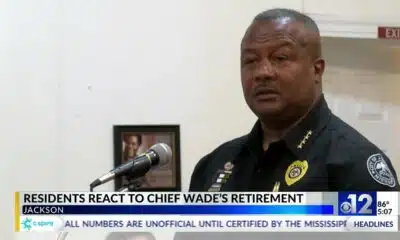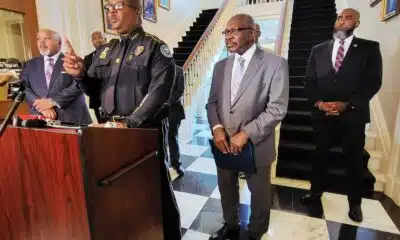Mississippi Today
State’s first family medicine obstetrics fellowship hopes to increase access to maternal care in rural areas
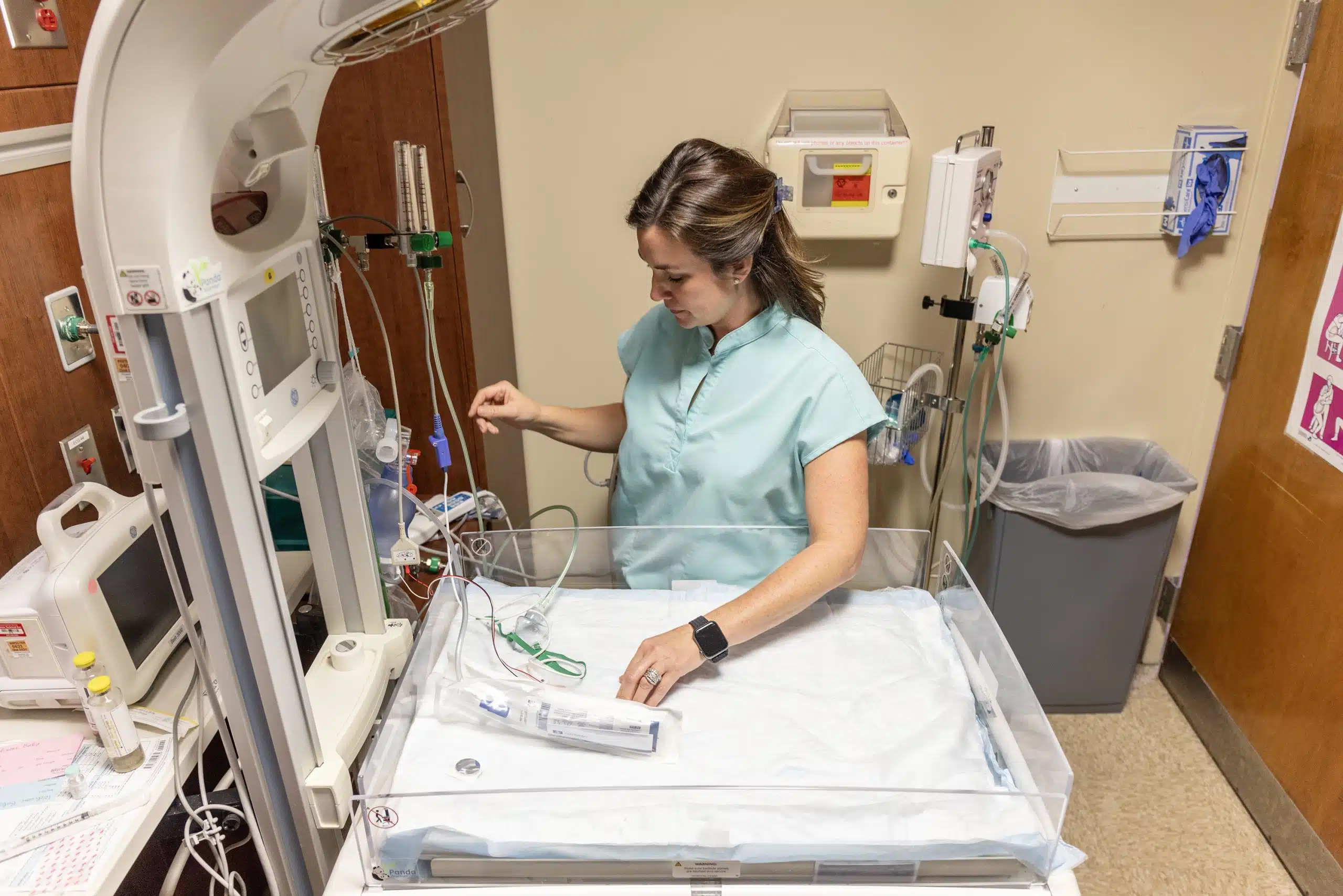
The state’s first fellowship to train family physicians to care for pregnant and postpartum women is poised to start next July.
The proposed fellowship will train two to three family physicians a year in obstetrics, which the medical community hopes will provide rural and underserved areas with prenatal, delivery and postpartum care.
More than half of Mississippi’s counties are considered maternity care deserts, meaning there are no practicing OB-GYNs and no hospitals that deliver babies. For family physicians looking to practice obstetrics, the lack of training programs and difficulty getting affordable malpractice insurance coverage are challenging.
Aside from two hospitals that have been able to cut through the red tape and use family physicians in maternal care, nearly all pregnancies are handled by OB-GYNs, who are in short supply in Mississippi and mostly practice in urban areas.
The state is an outlier when it comes to how little it uses family physicians in obstetrics. Across the country, family physicians play a significant role in providing obstetric care to expectant mothers. Neighboring Alabama, for instance, boasts five fellowships in obstetrics for family physicians.
Family physicians deliver babies in more than 40% of U.S. counties, and “are the sole maternity care clinicians delivering babies in 181 (maternity care deserts) … serving more than 400,000 women” nationwide, according to a report by the American Academy of Family Physicians.
Dr. James Lee Valentine and Dr. Melissa Stephens of EC Health Net, a family medicine residency program in Meridian, are designing the new one-year training program to focus on increasing access to rural maternal care.
“The fellowship will train family physicians to be able to go into some of our rural, underserved communities, and provide obstetric care for these women close to home, who may have limited access and are facing challenges,” Stephens said.
University of Mississippi Medical Center is home to the only OB-GYN residency in the state, which graduates five or six residents each year. Of those, an average of two residents remain and practice in Mississippi.
On the other hand, a record 37 family physicians graduated in 2023 from residencies in Mississippi – more than any year in the past five years, according to the Office of Mississippi Physician Workforce.
Meanwhile, the state’s maternal and infant mortality rates are worsening. Valentine and Stephens see the fellowship as one way to combat that.
“These patients sometimes don’t get any (prenatal care) and they show up in the emergency room, delivering … that’s got to change,” Valentine said. “And I’m not saying that we ought to put family practice doctors out there doing all kinds of GYN surgeries and all that, but we got to deliver better prenatal care to our patients in the rural areas.”
The fellowship will set physicians up on three-month rotations between EC Health Net in Meridian, South Sunflower Hospital in Indianola, and Wayne General Hospital in Waynesboro. Valentine and Stephens hope to also add a stint at a larger hospital studying gynecological surgeries.
South Sunflower and Wayne General are the only two hospitals in the state currently using family medicine OBs, despite the bureaucratic challenges. The family physician OBs at these two hospitals are attending the majority of births in their counties.
Dr. Kelvin Sherman, the only practicing family medicine OB at Wayne General, delivers between 180 and 280 babies a year from Wayne County and some neighboring counties. In 2022, 256 babies were born in Wayne County, which has no practicing OB-GYN, alone.
Sherman, who did his obstetrics fellowship in Alabama, said in his experience, women who are farther from obstetrical care tend not to seek help when experiencing symptoms because they can’t justify the long drive or using the county’s only ambulance. Having a family doctor nearby can make a huge difference in pregnancy outcomes.
“If they’ve got some place to go that’s 15 minutes away, then maybe they go get something checked on and find out that ‘Yeah, you are in preterm labor, but it’s early and we can stop it, and we can prolong your pregnancy and you can have a healthier baby – a baby that goes home with you rather than having to deliver early a small baby that ends up in the NICU that stays sick a lot in the first few years of life,’” he explained.
Sherman is breaking ground not only as one of the state’s only family medicine OBs, but also by working closely with a certified nurse midwife, a rarity in Mississippi – a state with no certified midwife program. Opening the doors to certified midwives could increase the amount of care available to women.
Advanced nurse practitioners are also qualified to give prenatal care. But in Mississippi, restrictive and expensive collaboration agreements limit the care nurse practitioners can provide.
Sherman’s partnership with the certified nurse midwife is the kind that Wayne General CEO Andrew Porter hopes the new fellowship will facilitate.
“The FMOB (a family medicine physician who practices obstetrics) can really be a multiplier,” Porter said. “They can be the captain of a ship that has these other providers working under them and it just multiplies the amount of care that can be provided to patients.”
South Sunflower in Indianola has three family physician OBs on staff who average about 250 births a year in a county that had 263 live births in 2022.
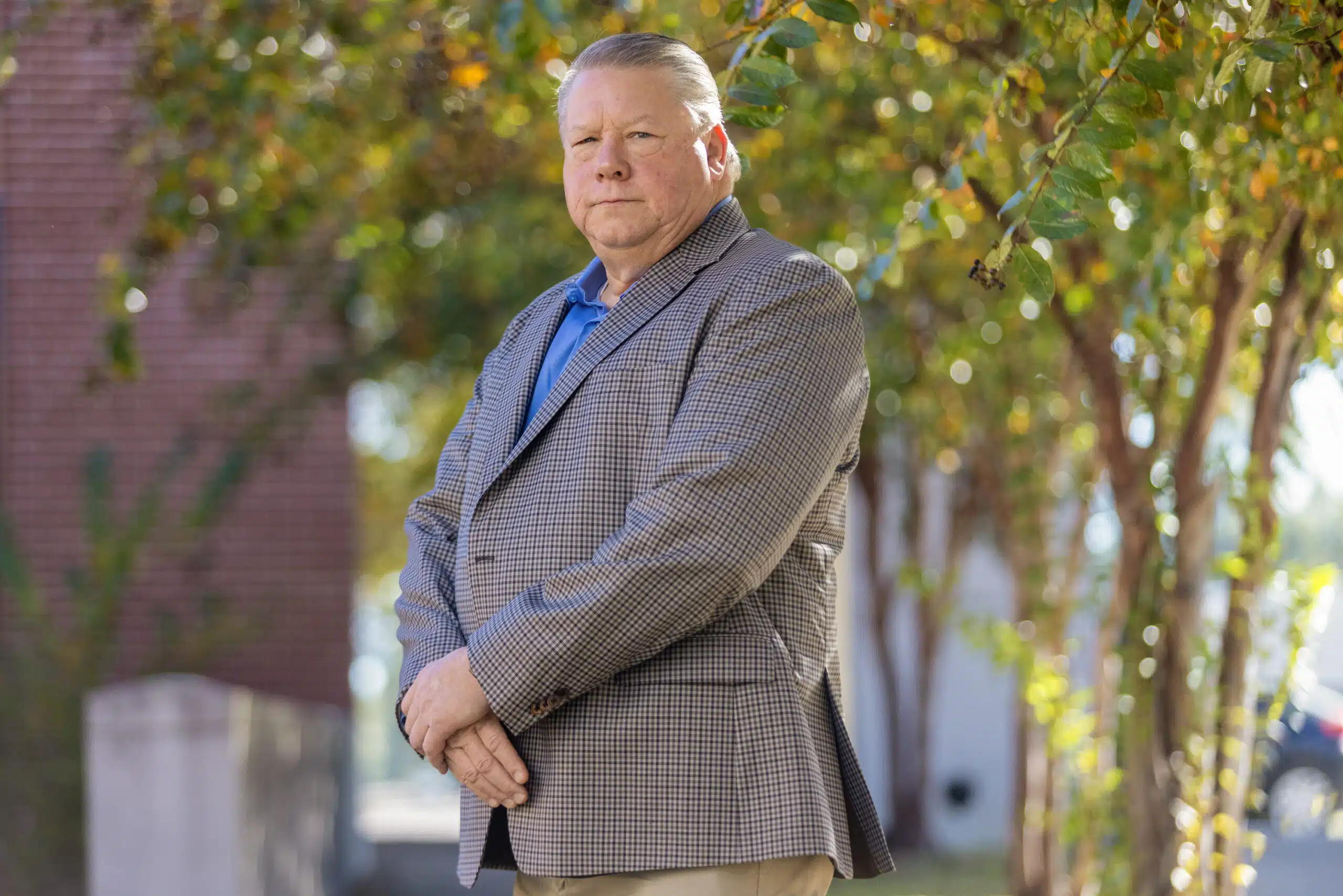
The hospital has been using the family medicine OB model since it opened in the 1930s, according to hospital CEO Courtney Phillips. It’s a lifeline today, where the next closest hospital is 30 miles away, and even there, there aren’t enough OB-GYNs to take care of all the deliveries.
“So, even though the next closest hospital to deliver is 30 miles away, they may have to travel all the way to Grenada if we weren’t here, which is close to 80 miles away,” Phillips explained.
The family medicine obstetrics model is used sparsely because while family physicians receive an unrestricted license to practice medicine, the problem lies in getting insurance and privileges at a hospital.
“There’s a big difference between licensure and credentials,” Stephens, a family medicine physician at EC Health Net in Meridian, said.
While the licensure board allows physicians to practice according to their training without restriction, physicians also need to apply for malpractice insurance coverage, which requires proving competence to the malpractice carrier, and then proving competence to get credentialed by the hospital they are joining. Both became difficult in Mississippi after the explosion of liability insurance costs in the 1990s.
Medical liability premiums skyrocketed across the U.S. at the turn of the century, but particularly in Mississippi – known by 2001 as the “lawsuit capital of the world,” according to a 2011 case study by the American College of Obstetricians and Gynecologists – and affected physicians’ ability to practice specialties like obstetrics or neurosurgery. Mississippi was “perhaps the hardest hit of the ‘red alert states,’” a term used to denote high medical liability regions, the case study said.
Valentine, who worked in obstetrics throughout the 1980s and had proven his competency to the board through documentation of all the procedures he performed and deliveries he attended, suddenly couldn’t afford his malpractice insurance premium when what he refers to as the “malpractice crisis” hit.
“My malpractice insurance went up about 180% premium-wise in a year’s time,” he said. “I couldn’t justify losing money to practice OB, and then take the risk on top of that. It was almost like they were trying to push us out.”
As it stands, Mississippi family physicians interested in obstetrics have few options: pursue an official training program in another state – which often results in those physicians deciding to either leave the state altogether or stay in the state and forego obstetrics – or train unofficially in Mississippi but without the guarantee of affordable malpractice insurance or a hospital that will grant them privileges.
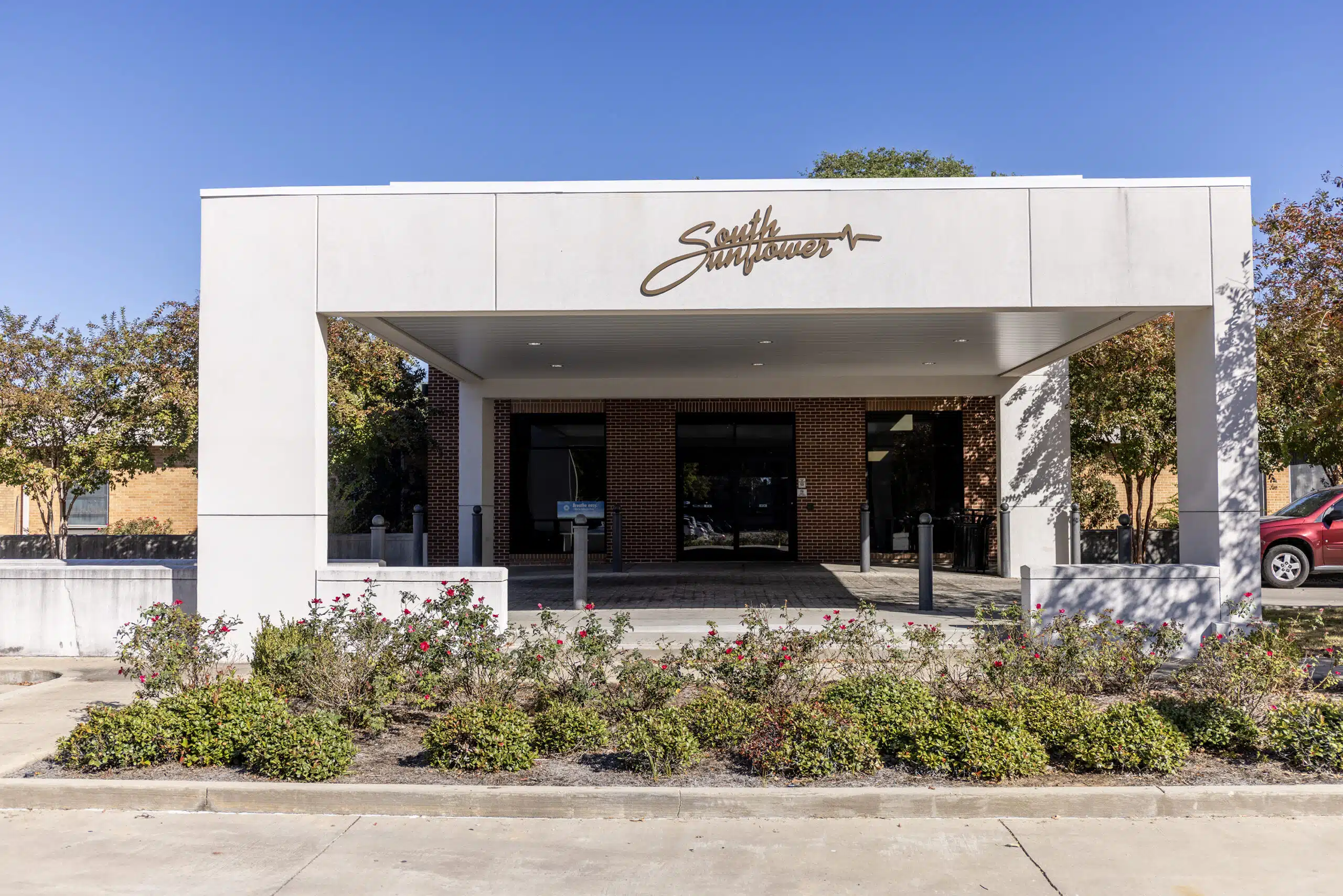
South Sunflower, according to Valentine, is able to utilize family physicians in obstetrics affordably because of its highly regarded staff that helps them get coverage and credentials.
“Places like Indianola, they have a track record,” he said. “Dr. Wade Dowell has been … a champion for family medicine, doing OB and doing general family medicine for years, and so he’s got a track record, and the doctors he’s trained there – they do a good job.”
Valentine and Stephens hope the new fellowship will offer a similar standard that will help family physicians receive credentials and coverage in obstetrics at an affordable rate – though it’s never a guarantee.
“Whether every hospital in the state of Mississippi will recognize that, whether every hospital will open their doors, I don’t know,” said Valentine. “But from the standpoint of being qualified … we want to make sure that our fellowship is substantial enough that when they leave our fellowship, whether it’s one year or two years, they’re ready to practice obstetrics at the level they’re trained to do that.”
The fellowship is one proposed solution to changing the maternal health landscape of Mississippi. But experts believe programs like it are critical in shifting the pendulum.
“It’s not going to be a cure-all for some of the obstetrics needs, and issues like infant mortality, but it’s a step,” Porter, the Wayne General CEO, said. “It’s people who are acknowledging that we have a crisis here in the state and are trying to do something about it. Here in Waynesboro, Mississippi, and the surrounding area of Meridian, and those in the Delta, we're trying to take the matter into our own hands and come up with some solutions.”
This article first appeared on Mississippi Today and is republished here under a Creative Commons license.
Mississippi Today
Judge: Felony disenfranchisement a factor in ruling on Mississippi Supreme Court districts
The large number of Mississippians with voting rights stripped for life because they committed a disenfranchising felony was a significant factor in a federal judge determining that current state Supreme Court districts dilute Black voting strength.
U.S. District Judge Sharion Aycock, who was appointed to the federal bench by George W. Bush, last week ruled that Mississippi’s Supreme Court districts violate the federal Voting Rights Act and that the state cannot use the same maps in future elections.
Mississippi law establishes three Supreme Court districts, commonly referred to as the northern, central and southern districts. Voters elect three judges from each to the nine-member court. These districts have not been redrawn since 1987.
READ MORE: Mississippians ask U.S. Supreme court to strike state’s Jim Crow-era felony voting ban
The main district at issue in the case is the central district, which comprises many parts of the majority-Black Delta and the majority-Black Jackson Metro Area.
Several civil rights legal organizations filed a lawsuit on behalf of Black citizens, candidates, and elected officials, arguing that the central district does not provide Black voters with a realistic chance to elect a candidate of their choice.
The state defended the districts arguing the map allows a fair chance for Black candidates. Aycock sided with the plaintiffs and is allowing the Legislature to redraw the districts.
The attorney general’s office could appeal the ruling to the U.S. 5th Circuit Court of Appeals. A spokesperson for the office stated that the office is reviewing Aycock’s decision, but did not confirm whether the office plans to appeal.
In her ruling, Aycock cited the testimony of William Cooper, the plaintiff’s demographic and redistricting expert, who estimated that 56,000 felons were unable to vote statewide based on a review of court records from 1994 to 2017. He estimated 60% of those were determined to be Black Mississippians.
Cooper testified that the high number of people who were disenfranchised contributed to the Black voting age population falling below 50% in the central district.
Attorneys from Attorney General Lynn Fitch’s office defended the state. They disputed Cooper’s calculations, but Aycock rejected their arguments.
The AG’s office also said Aycock should not put much weight on the number of disenfranchised people because the U.S. Fifth Circuit Court of Appeals previously ruled that Mississippi’s disenfranchisement system doesn’t violate the Equal Protection Clause of the 14th Amendment.
Aycock, however, distinguished between the appellate court’s ruling that the system did not have racial discriminatory intent and the current issue of the practice having a racially discriminatory impact.
“Notably, though, that decision addressed only whether there was discriminatory intent as required to prove an Equal Protection claim,” Aycock wrote. “The Fifth Circuit did not conclude that Mississippi’s felon disenfranchisement laws have no racially disparate impact.”
Mississippi has one of the harshest disenfranchisement systems in the nation and a convoluted method for restoring voting rights to people.
Other than receiving a pardon from the governor, the only way for someone to regain their voting rights is if two-thirds of legislators from both chambers at the Capitol, the highest threshold in the Legislature, agree to restore their suffrage.
Lawmakers only consider about a dozen or so suffrage restoration bills during the session, and they’re typically among the last items lawmakers take up before they adjourn for the year.
Under the Mississippi Constitution, people convicted of a list of 10 types of felonies lose their voting rights for life. Opinions from the Mississippi Attorney General’s Office have since expanded the list of specific disenfranchising felonies to 23.
The practice of stripping voting rights away from people for life is a holdover from the Jim Crow era. The framers of the 1890 Mississippi Constitution believed Black people were most likely to commit certain crimes.
Leaders in the state House have attempted to overhaul the system, but none have gained any significant traction in both chambers at the Capitol.
Last year, House Constitution Chairman Price Wallace, a Republican from Mendenhall, advocated a constitutional amendment that would have removed nonviolent offenses from the list of disenfranchising felonies, but he never brought it up for a vote in the House.
Wallace and House Elections Chairman Noah Sanford, a Republican from Collins, are leading a study committee on Sept. 11 to explore reforms to the felony suffrage system and other voting legislation.
Wallace previously said on an episode of Mississippi Today’s “The Other Side” podcast that he believes the state should tackle the issue because one of his core values, part of his upbringing, is giving people a second chance, especially once they’ve made up for a mistake.
“This issue is not a Republican or Democratic issue,” Wallace said. “It allows a woman or a man, whatever the case may be, the opportunity to have their voice heard in their local elections. Like I said, they’re out there working. They’re paying taxes just like you and me. And yet they can’t have a decision in who represents them in their local government.”
This article first appeared on Mississippi Today and is republished here under a Creative Commons Attribution-NoDerivatives 4.0 International License.
The post Judge: Felony disenfranchisement a factor in ruling on Mississippi Supreme Court districts appeared first on mississippitoday.org
Note: The following A.I. based commentary is not part of the original article, reproduced above, but is offered in the hopes that it will promote greater media literacy and critical thinking, by making any potential bias more visible to the reader –Staff Editor.
Political Bias Rating: Center-Left
This article presents a focus on voting rights and racial justice issues, highlighting the impact of felony disenfranchisement on Black voters in Mississippi. It emphasizes civil rights concerns and critiques longstanding policies rooted in the Jim Crow era, which aligns with center-left perspectives advocating for expanded voting access and systemic reform. The coverage is factual and includes viewpoints from multiple sides, but the framing and emphasis on racial disparities and voting rights restoration suggest a center-left leaning.
Mississippi Today
Jackson police chief steps down to take another job, national search to come
Jackson Police Department Chief Joseph Wade told the mayor last week he was choosing to retire after 29 years of service and two years at the helm of the force. Wade said he’d been given another job opportunity, which has yet to be announced.
His last day is Sept. 5.
Mayor John Horhn said he told Wade the officer would be crazy not to take the job — one that comes with less stress and more pay.
“His wife has been on his back, his blood pressure has been up,” Horhn said during Tuesday’s City Council meeting. “He has done a commendable job.”
Wade became chief during a period in which Jackson was called the murder capital of America. Under his tenure, Wade said crime has fallen markedly, including a roughly 45% reduction in homicides so far this year compared to the same period in 2024, the Clarion Ledger reported. He said he’s also increased JPD’s force by 37, for a total of 258 officers.
Wade said his biggest accomplishment is reestablishing trust. “We are no longer the laughing stock of the law enforcement community,” he said.
The chief’s departure comes less than two months after Horhn took office, replacing former Mayor Chokwe Antar Lumumba who originally appointed Wade, and on the heels of a spate of shootings that Wade said were driven by gangs of young men.
“I have received so many calls from the community: ‘Chief, please don’t leave us,'” Wade told the crowd in council chambers.
But Wade said he “would rather leave prematurely than overstay my welcome,” adding that the average tenure of a police chief is 2.5 years.
Wade said that last year he stood next to Jackson Councilman Kenny Stokes and told the media he was going to cut crime in half, “And what did I do? Cut it in half,” he said.
“What I’ve seen in our community in some situations is people want police, but they don’t want to be policed,” Wade said.
Hinds County Sheriff Tyree Jones will serve as interim police chief until the administration finds a replacement. Jones said he has not finalized a contract with the city, responding to a question about whether he will draw a salary from both agencies.
“I could think of no one better than the sheriff of Hinds County,” Horhn said, adding that the appointment is temporary.
Jones said during the meeting that his responsibility as sheriff will continue uninterrupted and that his goal within JPD is to ensure continued professionalism in the department.
“I extend my heartfelt gratitude to my dear friend and retired police chief Joe Wade,” Jones said. “Again, let me be clear, I have no aspirations to permanently hold the position.”
Horhn said there is precedence for the dual role that “Chief Sheriff Jones is about to embark upon,” citing former mayor Frank Melton’s hiring of Sheriff Malcolm McMillin.
The city has enlisted help from former U.S. Marshal George White and the former chief of the Mississippi Highway Patrol, Col. Charles Haynes, to lead the Law Enforcement Task Force that will conduct a nationwide search to fill the position. The administration expects that to take between 30 and 60 days, according to a city press release.
The release said the task force will also examine safety challenges in Jackson more broadly, such as youth crime, drug crimes, departmental needs and interagency coordination.
“I am grateful that Marshal White and Col. Haynes have agreed to lead this important effort. Their breadth of experience, commitment to public safety and deep understanding of law enforcement challenges will ensure the task force conducts a rigorous search for our next chief,” said Horhn. “I am confident they will help shape solutions that address the evolving needs of Jackson.”
The city said it would soon release details about the opportunity for the public to offer input on the process.
“Hinds County is all in for whatever we have to do to make Jackson and Hinds County the safest it can be,” Hinds County Supervisors President Robert Graham said during the meeting.
Wade, who hails from nearby Terry, graduated from JPD’s 23rd recruit class in 1995, rising from a police recruit and hitting every rung of the ladder on his way to chief. “I was homegrown,” he said.
Wade said he received “an amazing offer in a private sector at an amazing organization. Don’t ask me where. That will be released at the appropriate time.”
This story may be updated.
This article first appeared on Mississippi Today and is republished here under a Creative Commons Attribution-NoDerivatives 4.0 International License.
The post Jackson police chief steps down to take another job, national search to come appeared first on mississippitoday.org
Note: The following A.I. based commentary is not part of the original article, reproduced above, but is offered in the hopes that it will promote greater media literacy and critical thinking, by making any potential bias more visible to the reader –Staff Editor.
Political Bias Rating: Centrist
The article presents a straightforward news report on the resignation of a police chief, focusing on facts, quotes from officials, and crime statistics without evident ideological framing. It covers perspectives from multiple local government figures and avoids partisan language, reflecting a neutral, balanced tone typical of centrist reporting.
Mississippi Today
Bluesky blocks access in Mississippi, citing free speech and privacy concerns over state law
Mississippians can no longer access the Bluesky app after the social media platform blocked access to users in the state.
Bluesky said on Friday that it made the decision after the U.S. Supreme Court declined for now to block a Mississippi state law that the platform said limits free expression, invades people’s privacy and unfairly targets smaller social media companies. The state law, passed in 2024, requires users of websites and other digital services to verify their age.
“The Supreme Court’s recent decision leaves us facing a hard reality: comply with Mississippi’s age assurance law—and make every Mississippi Bluesky user hand over sensitive personal information and undergo age checks to access the site—or risk massive fines,” the company wrote in a statement. “The law would also require us to identify and track which users are children, unlike our approach in other regions. We think this law creates challenges that go beyond its child safety goals, and creates significant barriers that limit free speech and disproportionately harm smaller platforms and emerging technologies.”
Mississippi Attorney General Lynn Fitch, whose office defended the law, told the justices that age verification could help protect young people from “sexual abuse, trafficking, physical violence, sextortion and more,” activities that the First Amendment does not protect.
The age verification law added Mississippi to a list of Republican-led states where similar legal challenges are playing out.
NetChoice is challenging laws passed in Mississippi and other states that require social media users to verify their ages, and asked the Supreme Court to keep the measure on hold while a lawsuit plays out.
That came after a federal judge prevented the 2024 law from taking effect. But a three-judge panel of the 5th Circuit U.S. Court of Appeals ruled in July that the law could be enforced while the lawsuit proceeds.
On Aug. 14, the Supreme Court rejected an emergency appeal from a tech industry group representing major platforms such as Facebook, X and YouTube.
There were no noted dissents from the brief, unsigned order. Justice Brett Kavanaugh wrote that there’s a good chance NetChoice will eventually succeed in showing that the law is unconstitutional, but hadn’t shown it must be blocked while the lawsuit unfolds.
Bluesky grew after the 2024 presidential election. Many users of X, which is owned by Elon Musk, retreated from the platform in response to the billionaire’s strong support of Donald Trump.
In Bluesky’s statement explaining its decision to block access in Mississippi, the company said age verification systems “require substantial infrastructure and developer time investments, complex privacy protections, and ongoing compliance monitoring — costs that can easily overwhelm smaller providers.”
“This dynamic entrenches existing big tech platforms while stifling the innovation and competition that benefits users,” the company added.
Bluesky said it did follow other digital safety regulations, such as the United Kingdom’s Online Safety Act. Under that statute, age checks are required only for accessing certain content and features, and Bluesky does not track which users are under 18, the platform said:
“Mississippi’s law, by contrast, would block everyone from accessing the site—teens and adults—unless they hand over sensitive information, and once they do, the law in Mississippi requires Bluesky to keep track of which users are children.”
The Mississippi law, authored by Rep. Jill Ford, a Republican from Madison, is called the “Walker Montgomery Protecting Children Online Act,” named after a Mississippi teen who reportedly committed suicide after an overseas online predator threatened to blackmail him.
The Associated Press contributed to this report
This article first appeared on Mississippi Today and is republished here under a Creative Commons Attribution-NoDerivatives 4.0 International License.
The post Bluesky blocks access in Mississippi, citing free speech and privacy concerns over state law appeared first on mississippitoday.org
Note: The following A.I. based commentary is not part of the original article, reproduced above, but is offered in the hopes that it will promote greater media literacy and critical thinking, by making any potential bias more visible to the reader –Staff Editor.
Political Bias Rating: Center-Left
The content presents a perspective that emphasizes concerns about free speech, privacy, and the impact of government regulation on smaller tech companies, which aligns with a more progressive or liberal viewpoint on digital rights and corporate regulation. It critiques a Republican-led state law as potentially overreaching and harmful to innovation, while also acknowledging the law’s intent to protect children. The balanced presentation of both sides, with a slight emphasis on the tech platform’s viewpoint and civil liberties, suggests a center-left bias.
-
News from the South - Alabama News Feed7 days ago
Grants to boost local emergency alert systems in question as public media agency closes
-
News from the South - Arkansas News Feed6 days ago
New I-55 bridge between Arkansas, Tennessee named after region’s three ‘Kings’
-
News from the South - Texas News Feed4 days ago
DEA agents uncover 'torture chamber,' buried drugs and bones at Kentucky home
-
Local News7 days ago
Picayune Police Department increases effectiveness of drug busts, leading to decrease in offenses
-
News from the South - Georgia News Feed6 days ago
Bookman: Here’s how Georgia’s 2020 election crisis will factor into 2026 GOP campaigns for governor
-
News from the South - Missouri News Feed5 days ago
Missouri settles lawsuit over prison isolation policies for people with HIV
-
News from the South - Louisiana News Feed6 days ago
Families with citizen children deported by ICE sue Trump administration
-
News from the South - Virginia News Feed6 days ago
Erin: Tropical storm force winds 600 miles wide eases into Atlantic | North Carolina











